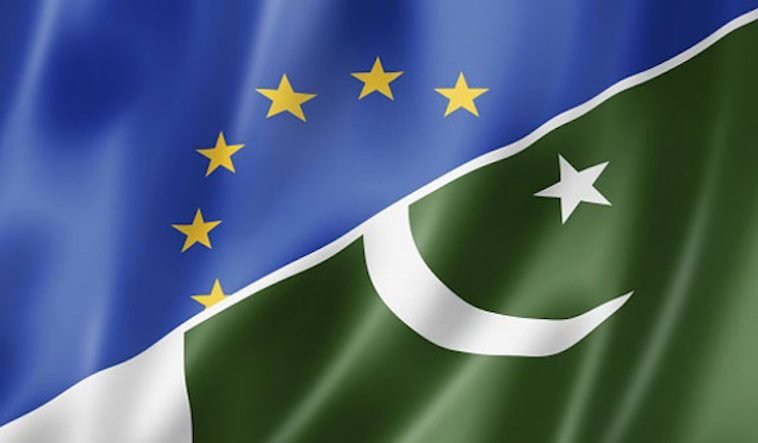The European Union (EU) has removed Pakistan from its “List of High-Risk Third Countries” so its commercial and economic operators won’t be subject to “Enhanced Customer Due Diligence.”
According to a statement from the Ministry of Commerce, Pakistan has been removed from the list of countries with strategic shortcomings in the Anti-Money Laundering/Countering the Financing of Terrorism (AML/CFT) regime that seriously endanger their financial system.
The delegated regulation states that Nicaragua, Pakistan, and Zimbabwe have fixed the strategic flaws in their individual AML/CFT regimes and are no longer a significant AML/CFT threat to the global financial system as a result of the actions taken to address the action plans reached with the Financial Action Task Force (FATF). The Commission believes that these jurisdictions no longer have strategic weaknesses in their respective AML/CFT regimes and do not pose a serious threat to the financial system of the European Union, taking into consideration their relevance under the updated methodology.
According to the aforementioned legislation, “Obligated Entities” in EU member states are no longer required to do “Enhanced Customer Due Diligence” when dealing with people and organizations based in Pakistan.
Credit institutions, financial institutions, and natural or legal people operating in the course of their professional activity are all considered “Obligated Entities.” Auditors, outside accountants, and tax consultants are included on the list of individuals.
Notaries and other independent legal experts who take part in any financial or real estate transaction on behalf of and on behalf of their clients, or who assist in the preparation or execution of deals involving:
i. Buying and selling of real estate or corporate organizations;
ii. Maintaining control over client funds, securities, or other assets
iii. Opening or running a bank account, a savings account, or a securities account
iv. Organizing contributions required for the founding, running, or management of businesses;
v. Establishment, administration, or management of foundations, corporations, trusts, or other similar entities;
Estate agents and other people who engage in the business of trading in goods to the extent that payments are made or received in cash in an amount of EUR 10,000 or more, whether the transaction is carried out in a single operation or in several operations that appear to be linked, are also included on the list of Obligated Entities.
Sir
EU has removed Pakistan from the List of High Risk Third Countries. Pakistani businesses and individuals would no longer be subjected to ‘Enhanced Customer Due Diligence’ by European legal and economic operators.— Syed Naveed Qamar (@naveedqamarmna) March 28, 2023
The European Union included Pakistan on its “List of High-Risk Countries” on October 22, 2018.
Due to the inclusion of Pakistan on the list, “Obligated Entities” in the EU were subjected to an excessive regulatory burden, and in some cases, they refused to engage in business dealings with people and organizations based in Pakistan.
According to the ministry, the new development would increase the degree of confidence among European businesspeople and is anticipated to reduce the expense and duration of legal and financial operations by local Pakistani organizations and people.
In November 2022, the UK got Pakistan off of its list of high-risk countries.


